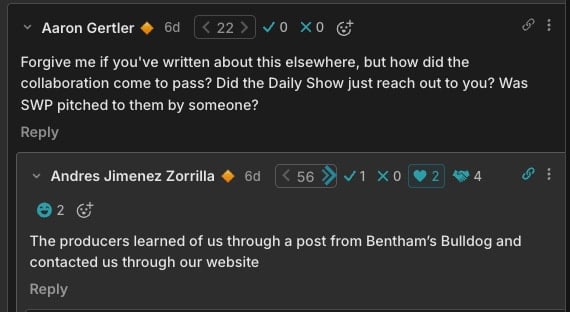Long-awaited Swapcard feature releases!
The moment we have all been waiting for (and that I've been pushing on for coming up to two years) is finally here!
You can now:
Note: Calendar syncing needs to be enabled on the Web version of Swapcard.
I think that the Google calendar syncing is at least a bit buggy for now, FYI. Agree good news though!
Ah interesting, good to know! What kind of bugs have you encountered? I did some basic tests and it seemed to work smoothly for me.
I heard reports of it getting out of sync or being out of date in some way. For example, a room change on Swapcard not being reflected in the Google calendar. I haven't tried it myself, and I haven't heard anything less vague, sorry.
Oh, looking now - my calendar sync is on but none of the Swapcard events appear in my Google Calendar (not meetups, not 1-on-1s) (I synced to Google Calendar before scheduling anything)
Do you have a way to debug it? Otherwise I'll disconnect and re-connect
Mine weirdly only shows on my mobile and not on my PC. Something to do with it being on a different calendar. Maybe that's what's happening for you?
Yeah, it still seems to have some issues. To fix something, I tried to disconnect then reconnect the sync, and it has not worked since then. Currently talking to support. But very excited about a future when this works!
Wish Swapcard was better?
Swapcard, the networking and scheduling app for EA Global and EAGx events, has published their product roadmap — where anyone can vote on features they want to see!
Two features currently in the "Researching (Vote)" stage have been requested by our attendees since the beginning of us using Swapcard for our events:
1) Reschedule a meeting
2) External Calendar Synchronization
If these sound like features you want, I encourage you to take a moment to vote for them! Every vote counts.
Swapcard product roadmap
One can submit new features here: https://www.swapcard.com/product-roadmap
I just submitted what you said.
Yeah this is a big one, and I have actually been pushing for this feature since January. Unfortunately, Swapcard don't see this as important enough to prioritize it. The last I heard, this was added to the Q3 roadmap, but knowing the timelines I don't expect this to be done any time soon (though I am following up about it!).
I guess I can see it being intentionally used a mechanism to prevent people from fabricating votes, but given the difficulty of doing that relative to Swapcard's popularity as a service — this level of resistance seems unnecessary.
I think swapcard is pretty bad and it's better to just move off of it entirely. Manifest is trying to use discord + airtable's calendar. we'll see if it's better
Rachel ended up rolling her own timeslot reservation system. I think it was over-all quite good (aside from some UI nitpicks). Keep in mind tho that Manifest is organized only around talks and group activities, but EAG uses swapcard for scheduled 1:1s, a very different use case.
I continue to like discord, though I didn't look at the Manifest discord very much.




I think that the Google calendar syncing is at least a bit buggy for now, FYI. Agree good news though!